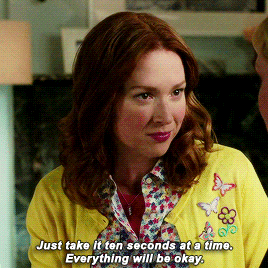When my mom announced that she was becoming a vegetarian I was furious. I was very young chubby girl at the time who enjoyed food. I was one of those kids that could eat anything at any quantity, meat included. Knowing how strict my mom was with nutrition, I was certain that this change would mean that we wouldn’t be able to eat as much meat as we liked. After doing more research, my mom found out about meat’s negative health impacts and decided to strictly limit the amount we ate. As a child I didn’t understand, however, the more I matured the more I realized that my mom was right. From the way meat is processed to the way it effects our bodies, meat is almost as damaging as poison, without mentioning the atrocious way animals are treated and raised for meat production.
The standard American diet is not the healthiest. This is proved by a variety of facts including that a third of the American population is classified as obese. According to a 2010 USDA study, the American diet is made up of 21% meats, eggs and nuts; 9% dairy products; 24% flour and cereal products; 23% fats and oils; and 14% caloric sweeteners. Refined carbs, added fats and added sugars play a huge role in the health issues of this country. Meat is also a crucial food group in the United States.
Recommended for you
The biggest health risks are associated mainly with the consumption of red and processed meat. Red meat includes steak, lamb, pork and mince while processed meat includes bacon, sausages, salami and ham. While they are a good source of protein and they have essential nutrients, they also tend to be high in saturated fat. This effects the well-being of our bodies in many ways. First of all, those who eat this type of meat have a higher risk of total mortality, cardiovascular mortality, and cancer mortality. It is estimated that regularly eating small amounts of unprocessed meat is associated with a 13% increased risk of mortality, while eating a similar amount of processed red meat, such as a hot dog or two slices of bacon, is associated with a 20% increased risk. In addition, eating anything more than 40g of processed meat a day can increase the likelihood of deaths from cancer and heart disease.
Vegetarian diets, in contrast, have shown to have incredible health benefits. While meat-eaters are more prone to suffer from cancer, cardio-vascular disease, diabetes, obesity, hypertension, bowel disease, gallstones, and others, vegetarians are more likely to be protected from certain diseases and live a longer life. This is because vegetarian diets are naturally low in saturated fats and high in fiber that helps reducing cholesterol levels. They are also filled with cancer-protective phytochemicals that help preventing cancer. Blood analysis of vegetarians also reveals a higher level of “natural killer cells,” specialized white blood cells that attack cancerous cells. Also, cutting out meat and added fats reduces the blood’s viscosity, or thickness, which results in lower blood pressure.
Many people worry that a vegetarian diet doesn’t provide all the essential nutrients. This is a common misconception because it is easy to have a well-balanced diet with vegetarian foods since many of them are rich in protein. At the same time, a strict vegetarian diet isn’t necessary for a healthy lifestyle.
Despite not being a vegetarian myself and trying to minimize the amount of meat I eat as much as possible, I recognize the risks that come along with eating meat. I am thankful that my mom pushed me to eat as little meat as possible when I was younger, because I am now informed on this topic and have an active interest in being as healthy as possible. It is important for people to be educated and to take care of themselves because, as cliché as it sounds, we are what we eat.









 man running in forestPhoto by
man running in forestPhoto by 












